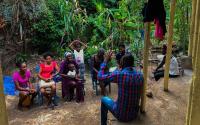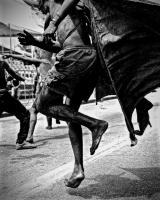Haiti
Articles tagged with Haiti
Tag Archive
- 9/11
- Achille Mbembe
- África
- african hair
- African lands
- Aqui
- Ariel Bogault
- arte contemporânea
- Artes africanas
- artwork
- Bienal
- BLM
- Britain
- Bruno Candé
- Carlota de Barros
- Ceramics
- chilhood memories
- cinema
- Circulation; Symbolic Ethnicity; Emotional Communities; Invention of Tradition; Memory of Place; Transculturalism
- Complô
- Conceição Evaristo
- contemporary photography
- Cova da Moura
- cultural movement
- David Goldblatt
- Deleuze
- Délio Jasse
- desenvolvimiento
- dj marfox
- economy
- Epistemodiversity
- estudio
- Faustin Linyekula
- Fim do Mundo
- Gegé Mbakudi
- gente de cor
- geological phenomena
- Guinea Conakry
- Hélio Oiticica
- history of Africa
- humor
- independência
- Irland
- Joëlle Sambi
- Jomo Fortunato
- Jornalism
- Ligue arabe
- Lisboa e Paraíso
- Luandaino Vieira
- luso-afro cinema
- Malangatana
- Mamadou Ba
- Mamadou Soumare
- mapa
- Maria Eugénia Leite Nunes
- Memorial to Homage Enslaved People
- middle-class
- midterms
- migration
- Miguel Gullander
- Moira Millán
- myth
- north
- Oppressions
- panafricanismo
- Paulo Flores
- pensamento
- periferias
- photography
- police violence
- Polícia
- política
- portuguese
- racism
- reeducation camps
- René Tavares
- representativity
- Resgate
- restitution of art
- Rio de Janeiro
- statues
- stereotypical images
- Sueli Duarte
- sul
- Tarrafal
- Terceira Metade
- Terra Batida
- Third Half
- Toussaint Louverture
- transatlantic
- Trinidad
- tunisia
- turismo
- undefined
- violence
- Violence against civilians in nigeria
- Viriato da Cruz
- WE WANT NO FUCKING ONE FOR FRESIDENT
- xhibition of the Portuguese World
- youth
 It is considered a treasure of Haitian culture, which reflects the society of the Caribbean country. The krik-krak, the art of telling riddles or tales (kont, in Creole) is a living tradition that unites and transcends generations through oral speech.
It is considered a treasure of Haitian culture, which reflects the society of the Caribbean country. The krik-krak, the art of telling riddles or tales (kont, in Creole) is a living tradition that unites and transcends generations through oral speech.  Notorious for blending the political and profane, denounced for its roots in Vodou, rabòday music is the defiant — and wildly popular — sound of a new, disaffected generation of Haitians. As the country prepares for long-awaited elections starting in August, stars of the genre have become unusually influential by turning public anxieties into dance-friendly anthems.
Notorious for blending the political and profane, denounced for its roots in Vodou, rabòday music is the defiant — and wildly popular — sound of a new, disaffected generation of Haitians. As the country prepares for long-awaited elections starting in August, stars of the genre have become unusually influential by turning public anxieties into dance-friendly anthems.  The significance of Mexico for this work is still emerging. Much more remains to be seen about just how deeply embedded the Mexican communists were in the radical networks across the Caribbean where black workers were predominant. Of what I have uncovered, the place of Mexico has two important functions in our historical understanding of the period. First, it was a place of refuge for not only radicals like the forced emigre from Republican Spain, but also for black revolutionaries like Jacques Roumain who spent some time there after being released from prison in Haiti and a short stint in Europe. Second, Mexico was the first people of color Communist nucleus in the western hemisphere, and the sense of anti-imperialism and sensitivity to chauvinism in the CPUSA was critical to strengthening the antiracist struggle across the region.
The significance of Mexico for this work is still emerging. Much more remains to be seen about just how deeply embedded the Mexican communists were in the radical networks across the Caribbean where black workers were predominant. Of what I have uncovered, the place of Mexico has two important functions in our historical understanding of the period. First, it was a place of refuge for not only radicals like the forced emigre from Republican Spain, but also for black revolutionaries like Jacques Roumain who spent some time there after being released from prison in Haiti and a short stint in Europe. Second, Mexico was the first people of color Communist nucleus in the western hemisphere, and the sense of anti-imperialism and sensitivity to chauvinism in the CPUSA was critical to strengthening the antiracist struggle across the region.  There is a present-day tendency to retreat into the realms of dystopia, of catastrophe and disaster, of failed states and fascism, of environmental collapse and economic apocalypse. This tendency is neither wrong nor mistaken. Yet it is often suffocating, only adding to the pressurized dread of the era, offering no antidote to the plague of cynicism, the chokehold of hopelessness, the drift, or, perhaps, the plunge, into a miasma of pessimism and hopelessness. Of course, there are other tendencies, other possibilities, other ways forward. Here, we briefly mention five recent books, loosely grouped under the banners of anarchism, autonomy, and utopia, that propose better worlds to come – as better must come.
There is a present-day tendency to retreat into the realms of dystopia, of catastrophe and disaster, of failed states and fascism, of environmental collapse and economic apocalypse. This tendency is neither wrong nor mistaken. Yet it is often suffocating, only adding to the pressurized dread of the era, offering no antidote to the plague of cynicism, the chokehold of hopelessness, the drift, or, perhaps, the plunge, into a miasma of pessimism and hopelessness. Of course, there are other tendencies, other possibilities, other ways forward. Here, we briefly mention five recent books, loosely grouped under the banners of anarchism, autonomy, and utopia, that propose better worlds to come – as better must come. 